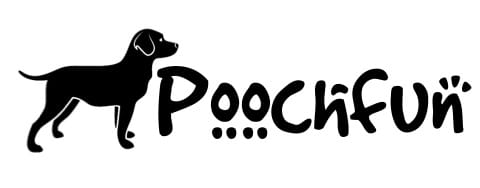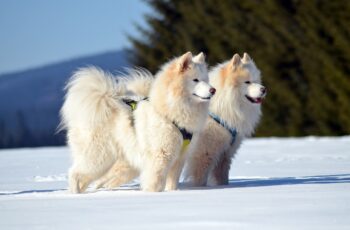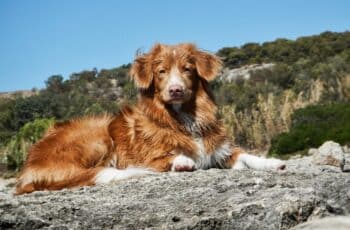A survey done by the American Pet Products Association found that over half of all dog owners felt that their dogs were members of their families. 60% said that they shared at least one meal with their pet each day, and about 47% shared their bed with them.
However, when there are children in the house, careful consideration must be given to selecting the right dog for your lifestyle, residence, and children’s ages. Some breeds are patient with young children, while others are preferable with older children. Some thrive in urban centers, while others require more space. Whatever the case may be, you’ll want a dog with an outgoing and friendly personality who is loving and affectionate with the entire family.
There are more than 100 different dog breeds, all with different personalities and physical characteristics. Some breeds are small and cute, while others are large and often very intimidating.
Top 5 Best Family Dogs
Labrador Retriever
There is a reason why the Labrador Retriever is the most popular dog in the United States. This breed is friendly, patient, and easy to train. They are highly adaptable, capable of hunting, showing, dock diving, tracking, and obedience. The Labrador Retriever is a first-rate watchdog, family pet, and companion.
Bulldog
The distinct and wrinkly Bulldog is an excellent companion for children. These devoted dogs adapt well to different environments and enjoy spending time with their owners.
Golden Retriever
The Golden Retriever was created in response to a demand for a medium-sized dog that could excel at upland and waterfowl hunting. The breed’s adaptability, intelligence, and amiable nature have made it one of the most successful, recognizable, and popular breeds in all fields of competition. The Golden Retriever is a beautiful dog often chosen as show dogs, show hunters, companions, family pets, and therapy dogs.
Beagle
With little reliable evidence on the Beagle’s early development, its actual origin appears to be a mystery. The Beagle is a great family dog because of its tiny stature, short, easy-to-care-for hair, and intelligence. The Beagle is a medium-sized dog with a short tail and a terrific combination of strength and agility, making it an excellent family dog. Beagles are intelligent canines who demand a close relationship with a caring owner. They must be socialized from a young age to integrate into a family.
Pug
The Pug is excellently described by the expression “multum in parvo,” meaning “a lot of dog in a tiny area.” His roguish face rapidly wiggles its way into the hearts of men, women, and especially youngsters, for whom this dog appears to have a special affection. His primary motivation for living is to be near his family. He is as at home in a little apartment as he is in a large country house and can adjust to any environment. The Pug is a lap dog who is exceptionally good at it. He is, above all, a family dog.
What kind of dog is the best family dog?
It can be a tricky question to answer, but some people would argue that it depends on the size of the family. If you have more than one child under the age of 16, or if your children are older and will be left home alone while you work, having a medium-sized animal may be best.
The best family dogs are ones that can play, cuddle, and guard all at once. They should be playful without being too energetic. That dog needs to get along with other animals, such as cats and rabbits. The best family dogs are also ones that enjoy the company of kids—they’re good at playing catch or tug-of-war or just lounging around on the floor.
Frequently Asked Questions:
How do I select a dog for my family?
Dogs who share your family’s disposition are most suited for you and your family. Certain canines are better suited for extroverted children and others for more introverted youngsters, depending on the child’s personality type and the dog’s temperament.
What should I consider when getting a second dog?
Typically, you should choose a dog of the opposite sex from your present dog. What’s the reason? A dominant male and dominant female dog are commonplace in every group. One of each will not compete with the other for the same post.



